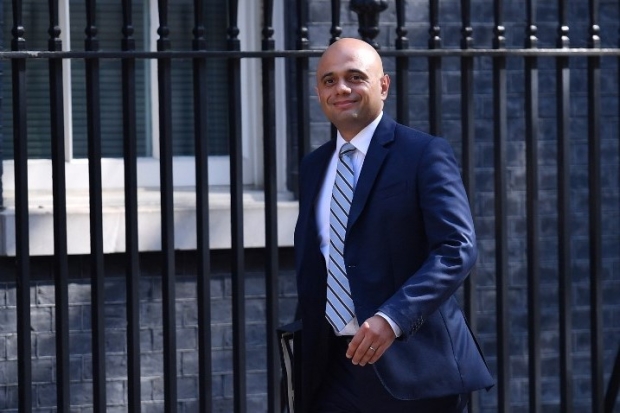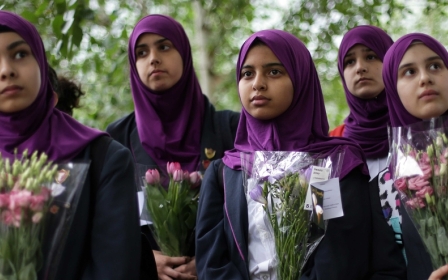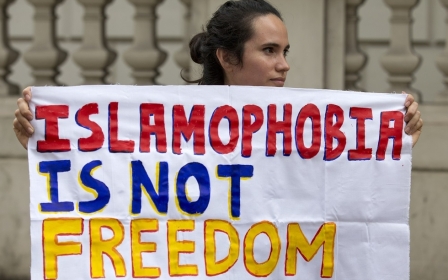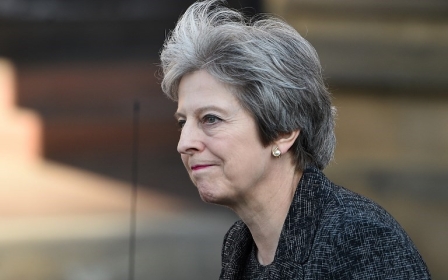Islamophobia - what Islamophobia?
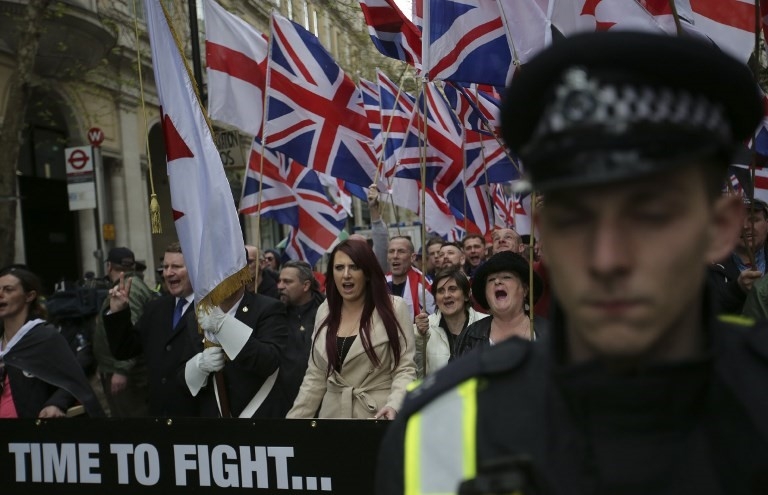
Leading figures in the Conservative Party, such as Baroness Sayeeda Warsi and Lord Sheikh, have repeatedly been asking the party to tackle Islamophobia within its ranks. Last week, the Muslim Council of Britain (MCB) wrote a letter to the party chair highlighting a range of instances of Islamophobic statements and actions that have caused alarm in the last two months alone.
A blinkered approach
Tell MAMA UK, an organisation set up several years ago to confront Islamophobia, also weighed in on the matter, arguing that it had been pressing the government on precisely this issue since at least 2016. Editorials from The Observer and The Times both reiterate the urgent need to look into this matter. All of these important players signalling their intent at the same time is turning heads.
This time it has also rattled the very top of the Conservative Party. The home secretary, Sajid Javed, spoke on the Andrew Marr Show, where he attempted to dismiss the whole matter by throwing cold water over Warsi's utterances and demonising the MCB for its alleged associations with extremism.
While there are many who wish to denounce the existence of Islamophobia, preferring 'Muslimphobia' instead; however, this masks the reality of the situation
The Conservatives are under fire and the heat is very much on, but for years, they have continued to demonstrate a blinkered approach. It is supported by the utter denial of many outspoken people who have apoplectic seizures when the word Islamophobia is even mentioned. However, this goes against decades of research, evidence and debate.
It also goes against mounting evidence of organised Islamophobia in Europe and the US.
The lived realities of brown and black people in some of the poorest parts of the country is ongoing evidence of policies that have not only excluded minorities but also demonised them.
These groups are left to suffer not far behind the former working classes who in turn are pushed to the brink and increasingly cajoled to vent their fury not at the workings of the state but against their poor inner-city neighbours.
Islamophobia everywhere
Islamophobia has the effect and impact of deep-seated racism – and it is no surprise that the current political elite are not interested in addressing it. Tory politicians get away with it because there is institutional Islamophobia in the party – festering and growing in plain sight – but this is just one party and Islamophobia is everywhere. In fact, I can identify at least 12 different variations:
1 Crime - Hate crime against Muslims/criminalisation of Muslims; 2 Cultural – Orientalism and "failed multiculturalism" courses; 3 Gendered - "Dangerous'"brown men, "vulnerable" brown women; 4 Ideological – Political left and the right are hostile to Islam/Muslims; 5 Institutional – Organisations, rationalisation and the "iron cage" lock in Islamophobic groupthink; 6 Intellectual – Influential right-wing and left-wing thinkers in denial; 7 Media – TV, print and social media and the press barons; 8 Political - Populism, nationalism and neoliberalism driving mass sentiment; 9 Religious - Christian, Jewish, Hindu and others hostile towards Muslim minorities; 10 State - Law, policymaking, judiciary, executive; 11 Structural - Education and employment outcomes for Muslim groups; 12 Xenophobic - Resistance to immigration and the limits of ethnic boundaries.
All of this exposes what has happened in my living memory, from the mid-1970s onwards, passing through various lows points: the Honeyford Affair in Bradford in 1983, the Rushdie Affair in 1989, Norman Tebbit's Cricket Test in 1990, Bosnia 1993-1996, 9/11 and the northern disturbances in 2001, and everything else since then, including 2017's tragedy of Grenfell. Most of the victims were brown, black, Muslim or immigrant.
The larger picture
With Brexit a constant irritation, the economy in trouble, and with no clear idea of what to do next about anything of any real social and political significance, this inquiry would expose a very bad stench that is in the air.
However, while I welcome an inquiry into Conservative Party Islamophobia, it is only one part of a bigger picture of anti-Muslim sentiment, hatred and action that affects the realities and perceptions of Islam and Muslims in Britain today. Islamophobia cuts across vast swathes of social, economic, cultural and political life.
To deny its very existence is just one of the many challenges faced in attempting to find a solution to a complex, multi-layered and widespread phenomenon. To want to do something about it is going to take a mammoth effort on the part of the Conservatives but the moment is ripe to push for it. Islamophobia is hugely damaging set of outcomes and effects.
It is about time that there is genuine honesty on the part of the authorities.
- Professor Tahir Abbas is currently visiting senior fellow at the department of government, London School of Economics. His recent books are Contemporary Turkey in Conflict: Ethnicity, Islam and Politics (Edinburgh University Press, 2016), and the four-volume edited collection Muslim Diasporas in the West (Routledge, 2017).
The views expressed in this article belong to the author and do not necessarily reflect the editorial policy of Middle East Eye.
Photo: Supporters of the far-right group Britain First wave flags as they march and rally in central London on 1 April, 2017 (AFP)
New MEE newsletter: Jerusalem Dispatch
Sign up to get the latest insights and analysis on Israel-Palestine, alongside Turkey Unpacked and other MEE newsletters
Middle East Eye delivers independent and unrivalled coverage and analysis of the Middle East, North Africa and beyond. To learn more about republishing this content and the associated fees, please fill out this form. More about MEE can be found here.



